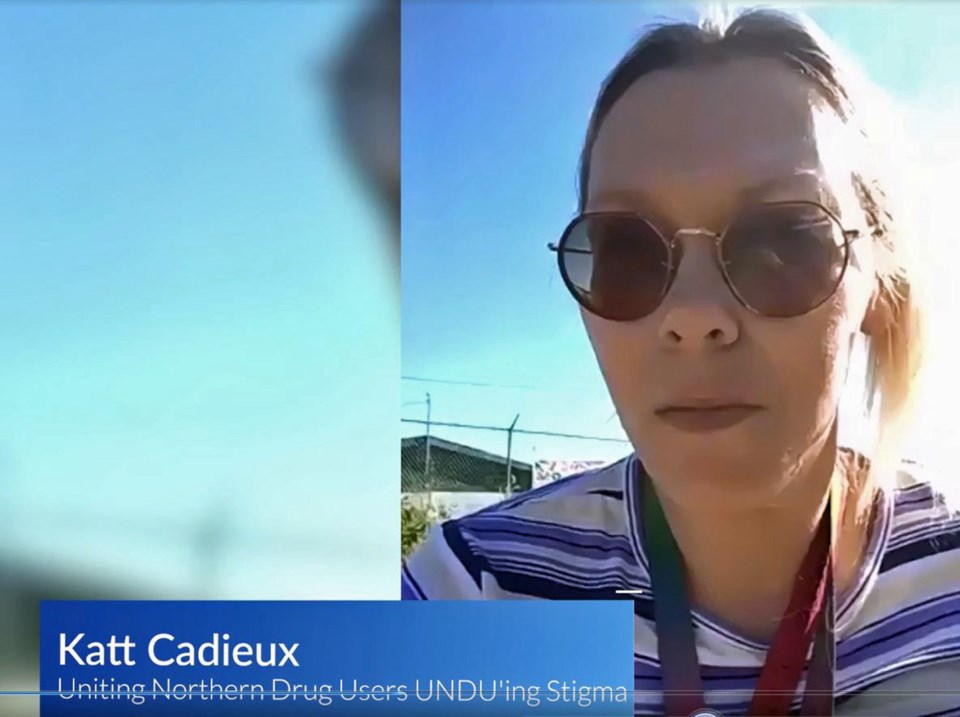Katt Cadieux has never forgotten where she’s come from.
As an intergenerational trauma survivor, Katt spent many years on the streets in Prince George and in Vancouver’s Downtown East Side. She was in and out of jail and was always struggling to keep her head above water.
I met Katt 23 years ago when I became her outreach worker. As a youth, she was already a graduate from the school of hard knocks. What was astonishing to me was that despite many dark challenges, she had a bright inner light. Katt told me back then that she wanted to be an outreach worker and help her peers on the streets.
There were pivotal points in Katt’s life that made her realize there was hope for a better life. When she received a pair of glasses so she could see properly. When she had dental work done so she didn’t feel embarrassed every time she opened her mouth.
These were important stepping stones that led to Katt successfully graduating from college with a diploma in cosmetology.
These events happened because there was genuine care and compassion for Katt’s well-being. This level of kindness and support is a rare occurrence these days.
As Katt observed more and more vulnerable people being pushed out to the margins of society, a career in esthetics became less appealing. She saw the dire need for a peer-led advocacy organization.
In 2018, Katt began reaching out to funders and service providers to start up an Indigenous led, grassroots peer organization called UNDUing Stigma (UNDU). Katt wanted to help her peers who were struggling out on the streets with nowhere to go and who had little to no support.
There’s value in being experiential because you’ve been there done that.” Katt said. “Peers can relate to what other peers are going through.”
One of the unique features about UNDU is that Katt is constantly recruiting peer staff to work with her doing outreach on the streets. Peers were also hired to work in the community garden at Moccasin Flats.
Having opportunities for employment brought people like Sammie Hetherington out of her shell. By Katt taking her under her wing and mentoring her boosted Sammie’s self esteem.
“Working for Katt gave me confidence.” Sammie said. “I love doing outreach and helping bring smiles to people’s faces.”
The COVID lockdown posed huge barriers but Katt and her peer staff were determined to overcome them to help their clients. They did outreach to collect data and identified over 85 people who were homeless. These folks were either barred from the shelters or chose not to stay there because of how they were treated.
I am a firm believer that a peer-based approach to homelessness is one of the key ingredients to effectively and successfully addressing our current housing crisis. Peer support can lead to building bridges to access housing, food security, medical attention and other basic needs that marginalized folks go without because of judgement and stigma.
Clearly, the current mainstream practises are not working to adequately address the needs of the un-housed. Prince George has been provided with valuable recommendations from various sources over the course of many years. The decision makers need to start thinking outside of the box immediately. Because there will be no change, if there is no change. .
Diane Nakamura is a Prince George writer.


